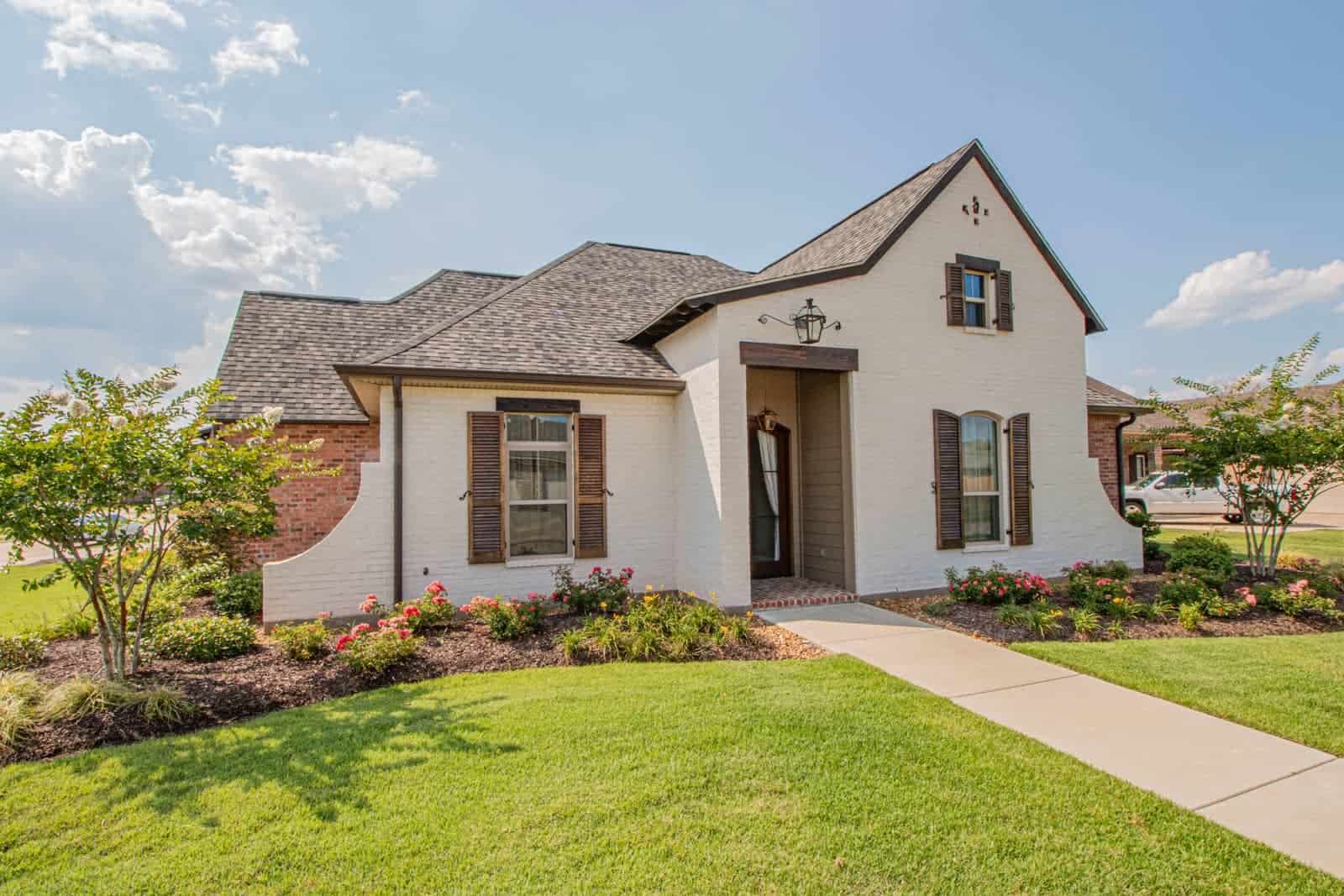As a real estate professional, your work demands a reliable and versatile laptop that can keep up with your fast-paced lifestyle. I've spent considerable time researching and reviewing the best laptop for realtors, ensuring that you can focus on what you do best: closing deals and helping clients find their dream homes.
Realtors require a laptop that boasts a sleek design, long battery life, and excellent performance to handle an array of tasks, from creating presentations to managing contracts and staying connected with clients. Whether you're on the go, attending open houses, or working from your office, a high-quality laptop is an essential tool for today's real estate professionals. I've meticulously combed through an extensive laptop spreadsheet, comparing specs and reviews from both professionals and users, to narrow down the top options tailored to your unique needs and price ranges.
My experience in the laptop industry, combined with my familiarity with the real estate profession, has allowed me to understand the specific requirements and preferences of realtors when it comes to choosing the ideal device. While you're busy keeping up with the latest market trends, connecting with clients, and navigating the ever-evolving world of real estate technology, rest assured that this guide will help you find the best laptop for your profession.
Power Up Your Real Estate Business with the Right Processor
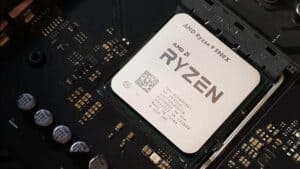
Real estate professionals often require a fast and efficient laptop to handle multiple applications simultaneously. When choosing the right laptop processor for realtors, it is essential to prioritize single-core performance and power efficiency. Here are some factors to consider when selecting the right processor for your needs:
Market Overview
The market offers a range of processors suitable for real estate professionals. Apple's ARM-based M1, M2, M2 Pro, and M2 Max modules deliver exceptional single-core performance and battery life, while AMD's 6th and 7th generation Ryzen processors capture 20% of the laptop CPU market. Intel's 12th and 13th generation Core processors also offer value and performance, with hybrid performance/efficiency core design.
Budget
When considering your budget, mid-range to high-end Intel U-series processors or their AMD equivalents are an excellent option, providing good performance per watt ratio and affordability. High-performance H-series chips offer much higher clock speeds, but they are power-hungry and suitable for gaming laptops.
Best Suited Processors
Realtors require a laptop with a processor that can handle multiple applications simultaneously, which necessitates prioritizing single-core performance. We recommend the following processors based on budget:
- Minimum budget: i3-1115G4
- Recommended budget: i5-1135G7
- High-end budget: i7-11370H
Trade-Offs
High-performance processors require more power and generate more heat, decreasing battery life and increasing the laptop's weight. A laptop with a high-performance CPU might require more cooling, increasing fan noise.
In addition to the processor, real estate professionals also need a large amount of RAM (32 GB+), SSD storage (1 TB+), and multiple ports (USB 3.2 Gen 2). If you are a real estate professional looking for a laptop, prioritize single-core performance, consider your budget and the trade-offs, and use our recommended processors as a guide.
Picture Perfect: Finding the Right Graphics Card for Realtors
As a real estate professional, you may wonder whether you need a dedicated graphics card in your laptop. While it's possible to get by without one, a powerful graphics card can make a big difference in displaying 3D models and videos.
Nvidia continues to dominate the laptop GPU market, with the RTX 30 series comprising the majority of current notebook GPUs. However, with the release of the RTX 40 series, we can expect to see more laptops with these newer GPUs on the market soon.
When it comes to selecting a graphics card, there are a few things to consider. If you primarily use your laptop for basic office tasks and browsing, an integrated graphics chip like Intel UHD or AMD Radeon R may suffice. But if you need to display 3D models or videos, you'll want a dedicated graphics card.
Gaming laptops often come with high-end GPUs, but they can be bulky and heavy. Workstations are another option that offers even more power, but they can be pricey. Thin and light laptops can also have dedicated GPUs, but they may not be as powerful as their bulkier counterparts.
When comparing graphics cards, I recommend looking at 3DMark scores, particularly Fire Strike. These scores are more indicative of real-world performance for professional use cases.
Here's a table of recommended GPUs at different price points:
| Price Bracket | Suggested GPU |
|---|---|
| Minimum | GeForce GTX 1650 |
| Recommended | GeForce RTX 3050 |
| High-end | GeForce RTX 2060 |
It's worth noting that Nvidia has discontinued the Max-Q label for its RTX graphics cards, so the exact wattage and performance of a laptop with an RTX GPU may vary depending on the laptop manufacturer.
Top FAQs about Laptops for Real Estate Professionals
Q: What are the best laptops for realtors?
The best laptops for realtors depend on their budget and needs. Some of the top laptops for real estate business are Lenovo Ideapad3i, Lenovo Legion 5 Pro, GIGABYTE AORUS 15 XE4, ASUS ROG Strix Scar, and ASUS ROG Zephyrus Duo.
What laptop specifications do realtors need?
Realtors need a laptop with a minimum of i3-1115G4 or higher processor, at least GeForce GTX 1650 or higher graphics card, and 16 GB or higher memory. These specifications are essential to run real estate software, handle multiple tasks at once, and provide a smooth workflow.
How to choose a laptop for real estate business?
While choosing a laptop for a real estate business, you should consider the laptop's performance, graphics, memory, and budget. A laptop with a higher processor and graphics card is recommended for handling real estate software efficiently. Also, a laptop with a good amount of memory ensures smooth multitasking. Choose a laptop that fits your budget.
Is a touchscreen laptop necessary for realtors?
No, a touchscreen laptop is not necessary for realtors. However, it can be helpful for some realtors who prefer touch input to navigate software and applications.
What are the best laptops for realtors under TOPIC_QUESTIONS,000?
Some of the best laptops for realtors under TOPIC_QUESTIONS,000 are Lenovo Ideapad3i and GIGABYTE AORUS 15 XE4. Both laptops offer excellent specifications and features at an affordable price.
Can I use a Chromebook as a realtor?
While Chromebooks can be affordable and lightweight, they may not be the best choice for realtors. Chromebooks don't run Windows or MacOS and don't support all real estate software. Additionally, most Chromebooks have limited storage and performance, making them unsuitable for running multiple applications and tasks.
Do realtors need a powerful laptop?
Realtors don't need the most powerful laptop, but they do need a laptop with sufficient processing power, memory, and graphics to run real estate software and handle multitasking efficiently.
What are the minimum laptop requirements for real estate software?
The minimum laptop requirements for real estate software are a processor with at least i3-1115G4 or higher, 16 GB or higher memory, and a graphics card with at least GeForce GTX 1650 or higher.
Is it better to have a 13-inch or 15-inch laptop as a realtor?
It depends on personal preference and needs. A 15-inch laptop offers a larger screen, which can be helpful for viewing multiple windows, charts, and graphs. On the other hand, a 13-inch laptop is more portable and lightweight, making it easier to carry around for client meetings.
Can a MacBook Air be used by realtors?
Yes, a MacBook Air can be used by realtors. However, to run real estate software efficiently, it is recommended to choose a MacBook Air with at least an i5 processor, 16 GB or higher memory, and a graphics card with at least GeForce GTX 1650 or higher.
Maximize Your Multitasking with Ample RAM
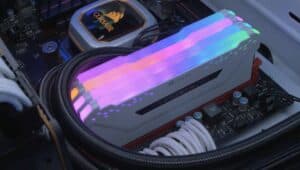
As the real estate industry continues to rely more heavily on technology, the demand for powerful laptops has increased. One essential component to consider when purchasing a laptop for real estate professionals is the amount of RAM it comes with.
While most mid-range laptops come with 16 GB of RAM and high-end laptops offer 32 GB or more, real estate professionals will need more if they're using 3D rendering or virtual reality to showcase properties. In those cases, 16 GB is the minimum, and 32 GB is ideal.
However, the amount of memory needed ultimately depends on the daily tasks. If you're working with large files and complex models, you'll need more than 16 GB. Similarly, if you're using multiple applications at once – such as a web browser with multiple tabs open – you'll want more RAM than the average user.
While DDR5 is now available, it is still quite expensive and needs time to mature as a technology. Therefore, latest-gen Intel and AMD CPUs that support DDR4 are still a great option.
When it comes to budget, expect to pay more for laptops with higher amounts of RAM. As a general rule, a minimum of 16 GB is required, but for the best performance, 32 GB or even 64 GB is recommended. Keep in mind that while RAM speed may not be as important as the processor or graphics card, it does matter in some cases – especially if you're working with large files over 100 MB.
In summary, for real estate professionals, 16 GB of RAM is the minimum requirement, with 32 GB being the ideal choice. Those working with larger files or multiple applications may want to consider 64 GB. DDR4 RAM is a reliable option, and while DDR5 is available, it is not necessary yet. With these guidelines in mind, you can make an informed decision on the right laptop RAM for your real estate needs.
5 Best Laptops for realtors
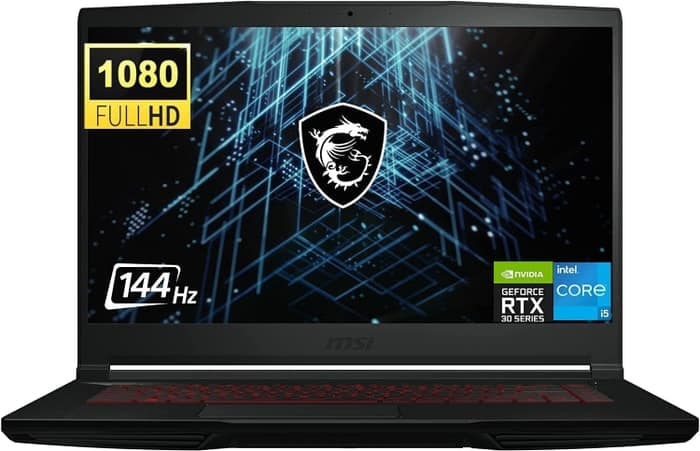
1.MSI FHD
MSI FHD: An affordable laptop with decent gaming capabilities and a slim design, but falls short compared to competitors in terms of performance and display quality.- Extremely affordable
- Capable in mid-range games
- Slim, light chassis
- Satisfying keyboard
- Rivals are routinely faster
- Single-channel memory
- Disappointing display and battery life
Summary
The MSI FHD is a budget-friendly option that can handle mid-range games and offers a slim and lightweight design. While it may not match the performance of its rivals and has some drawbacks like single-channel memory and disappointing display and battery life, it still provides good value for office work and occasional gaming.
Reviews
Alternatives
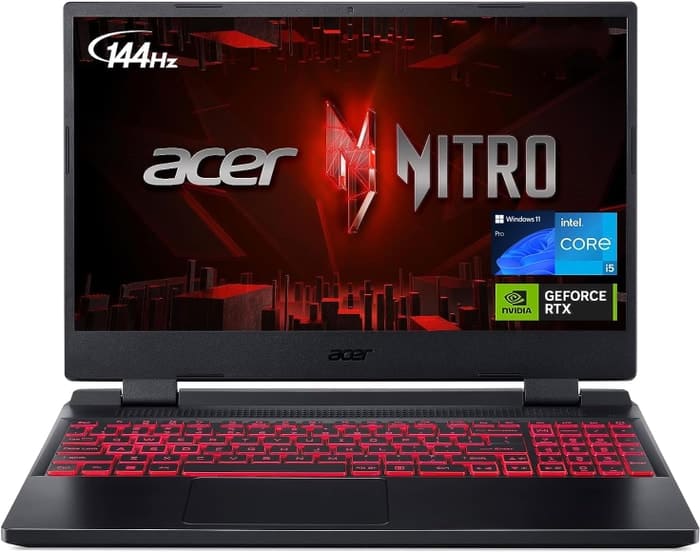
Acer Nitro 5
- Affordable price
- Steady mainstream gaming performance
- Limited CPU and storage for gaming
- Middling build quality

2.Lenovo Legion 5i Pro 16
Lenovo Legion 5i Pro 16: A gaming powerhouse with style and value.- Stylish, sleek form factor
- Gorgeous display
- Strong performance
- Quiet fans
- Webcam quality is poor
- No biometrics
- SSD is slightly slower than competition
Summary
The Lenovo Legion 5i Pro 16 is a sleek and stylish gaming laptop that offers strong performance and a gorgeous display. While it may lack biometrics and its webcam quality leaves something to be desired, it makes up for it with plenty of ports and quiet fans.
Reviews
Alternatives
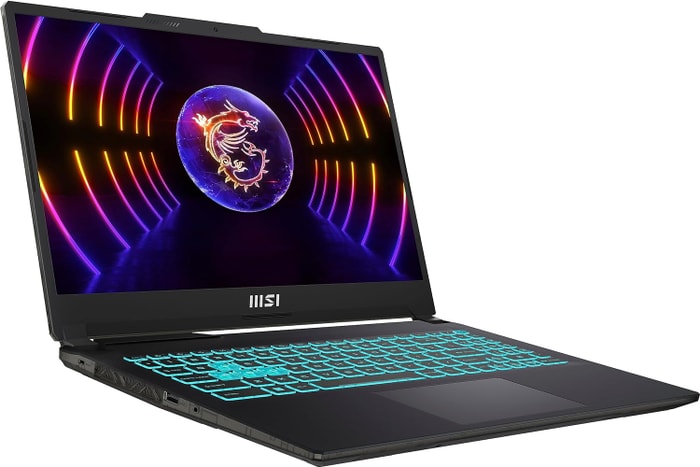 $1,430
$1,430MSI Cyborg 15
- Able to play at the highest 1080p settings
- Peppy processor for the money
- Display is dim and disappointing
- Sharp chassis edge can dig into wrists during typing
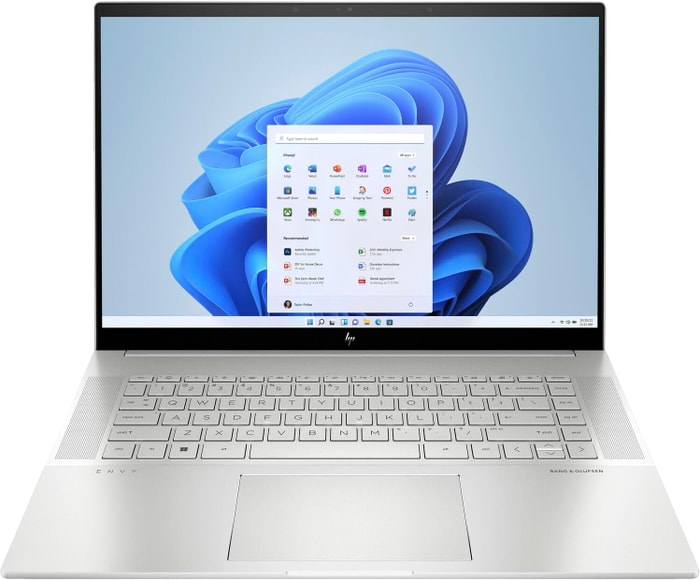 $1,800
$1,8003.HP Envy 16
The HP Envy 16 offers high-end features and powerful performance, but its bulky design and average screen may not appeal to everyone.- Plenty of CPU and GPU power
- New 120Hz screen refresh rate
- High-res webcam
- Sleek design
- Merely adequate base screen
- Optional OLED has fewer pixels than before
- Bulky and heavy
Summary
The HP Envy 16 is a desktop replacement laptop that offers impressive features like a high-res webcam and a 120Hz refresh rate display. It provides ample CPU and GPU power for creative apps and light gaming. However, its bulky and heavy design, along with an average base screen, may be drawbacks for some buyers.
Reviews
Alternatives

ASUS ROG Strix G15
- High-performance CPU and GPU
- Good workmanship and sophisticated design
- Skimpy connectivity
- Potential for coil whine in certain situations
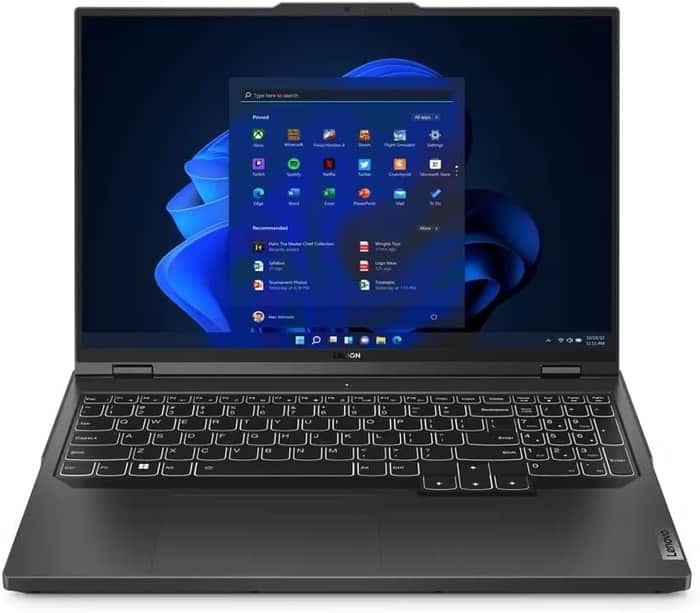
4.Lenovo Legion Pro 5
Lenovo Legion Pro 5 - A good-value mid-tier laptop with solid performance, but be cautious of hotspots and limited battery life.- Good build quality and design
- Good screen and IO
- Competent CPU with multiple GPU options
- Competitively priced
- No Thunderbolt or biometrics
- Some hotspots while gaming
- Poor speakers
- So-so battery life
Summary
The Lenovo Legion Pro 5 is a well-built laptop with a good screen, inputs, and plenty of performance. It offers good value for its price, but potential buyers should be aware of hotspots in sustained loads, limited battery life, and lacking speakers.
Reviews
Alternatives
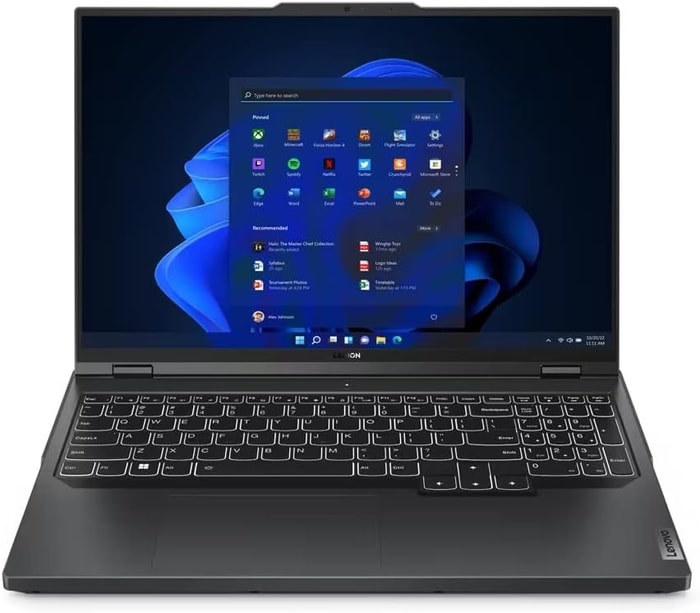 $2,840
$2,840Lenovo Legion Pro 5
- Strong performance for the price
- Quality build and port selection
- Display quality and battery life are just decent
- Bulky and heavy

5.Lenovo Legion Pro 7i 16
Lenovo Legion Pro 7i 16: A sleek and powerful gaming laptop with a justifiable price point.- Strong overall performance
- Big, bright, and fast display
- Per-key RGB lighting
- Some flex to keyboard deck
- Poor battery life
Summary
The Lenovo Legion Pro 7i 16 impresses with its powerful i9-13900HX processor and RTX 4090 graphics card, delivering strong overall performance. With a sleek design and a fair price tag, it offers great value for gamers looking for a long-term investment.
Alternatives
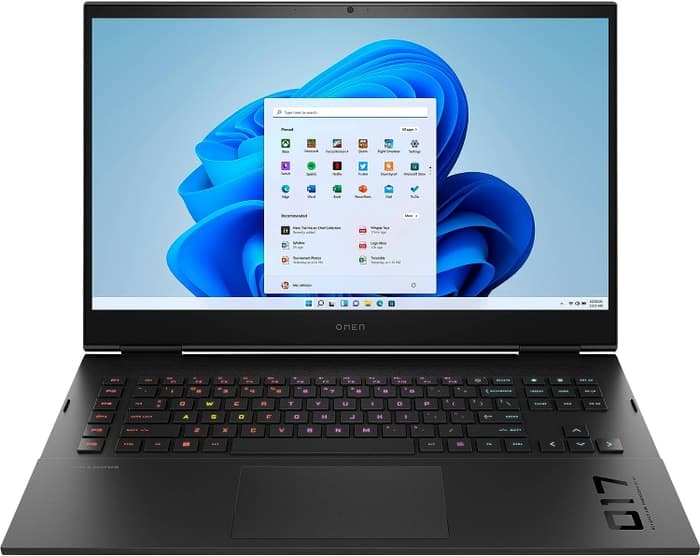
HP Omen
- Slim and portable build for a 16-inch laptop
- Midrange gaming performance at a reasonable price
- All-AMD configuration outpaced by Intel- and Nvidia-based competitors
- Unimpressive 144Hz refresh rate and full HD resolution
Table of the Best Laptops for realtors
| Laptop | Price (approx) |
| MSI FHD | $960 |
| Lenovo Legion 5i Pro 16 | $1,300 |
| HP Envy 16 | $1,800 |
| Lenovo Legion Pro 5 | $2,630 |
| Lenovo Legion Pro 7i 16 | $3,390 |

